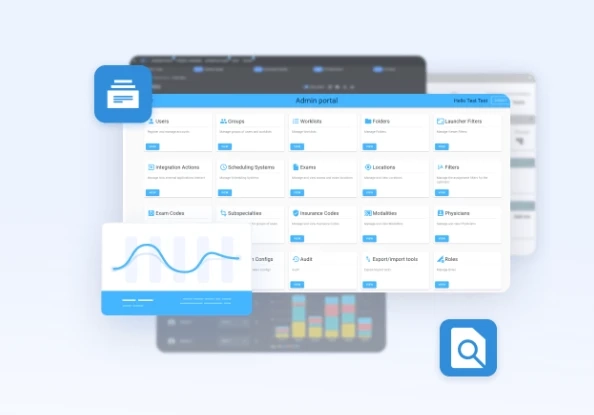In today’s fast-paced and hypercompetitive market, businesses are under immense pressure to streamline operations, improve efficiency, and respond quickly to customer needs. Traditional enterprise resource planning (ERP) systems, while powerful, often come with high upfront costs, complex implementation, and limited scalability. Enter cloud-based ERP solutions—a transformative approach that is changing how businesses operate and thrive in the digital age.
This article explores how cloud ERP is reshaping business operations, its benefits, challenges, and the role of an ERP software development company in helping organizations maximize its potential.
Understanding Cloud-Based ERP Solutions
Enterprise Resource Planning (ERP) systems integrate core business functions—such as finance, supply chain, human resources, sales, and customer service—into a unified platform. Traditionally, ERP was hosted on-premises, requiring companies to maintain their own hardware, software, and IT teams.
Cloud-based ERP, on the other hand, leverages cloud computing to deliver ERP functionalities via the internet. Instead of heavy infrastructure investments, businesses can access ERP capabilities through a subscription-based model. This shift reduces complexity while enhancing accessibility, scalability, and innovation.
Why Cloud ERP Is a Game-Changer
The growing adoption of cloud ERP is not just a passing trend—it’s a fundamental shift. Here’s why businesses are embracing it at record speed:
1. Scalability and Flexibility
Cloud ERP systems grow with the business. Startups can begin with basic modules, while enterprises can scale up to cover global operations. This flexibility allows companies to adapt to new markets, customer demands, and industry regulations without overhauling their systems.
2. Cost Efficiency
Unlike traditional ERP, which involves hefty upfront investments, cloud ERP follows a subscription or pay-as-you-go model. This reduces capital expenditure and allows organizations to allocate budgets more effectively. Businesses no longer need to purchase servers, hire large IT teams, or manage complex upgrades.
3. Enhanced Accessibility
With cloud ERP, employees can access critical business data anytime, anywhere—whether working from the office, home, or on the road. This 24/7 accessibility enhances collaboration, decision-making, and productivity, especially in today’s remote and hybrid work environments.
4. Automatic Updates and Innovation
Cloud ERP providers deliver regular updates and enhancements automatically. This ensures businesses always operate with the latest features, security patches, and compliance measures—without the downtime or cost of manual upgrades.
5. Improved Data Security
Modern cloud ERP solutions offer advanced security measures such as encryption, multi-factor authentication, and real-time threat monitoring. For many businesses, cloud providers offer stronger security than what they could maintain in-house.
6. Integration with Emerging Technologies
Cloud ERP seamlessly integrates with innovations such as artificial intelligence (AI), machine learning (ML), Internet of Things (IoT), and big data analytics. These integrations empower companies to predict trends, automate processes, and make smarter business decisions.
Key Business Areas Transformed by Cloud ERP
The impact of cloud ERP extends across multiple departments and industries.
Finance and Accounting
Cloud ERP automates financial workflows, from invoicing and payroll to compliance and reporting. Real-time dashboards allow finance teams to monitor cash flow, analyze performance, and forecast with precision.
Supply Chain and Inventory Management
Companies can track inventory levels, supplier performance, and logistics in real time. This visibility reduces waste, improves order accuracy, and enhances customer satisfaction.
Human Resources (HR)
Cloud ERP streamlines HR operations, including recruitment, employee onboarding, payroll, and performance management. With self-service portals, employees can manage personal information, benefits, and leave requests independently.
Customer Relationship Management (CRM)
Integrated CRM features allow businesses to manage leads, sales pipelines, and customer interactions. This ensures personalized experiences, improved retention, and higher customer satisfaction.
Project Management and Collaboration
Cloud ERP enables better resource allocation, project tracking, and inter-department collaboration. Teams across locations can share information and work together seamlessly on the same platform.
Cloud ERP vs. On-Premises ERP
FeatureCloud ERPOn-Premises ERPDeploymentHosted on cloud, accessible onlineInstalled on company’s local serversCost StructureSubscription-based (OPEX)Large upfront cost (CAPEX)ScalabilityHighly scalableLimited, costly upgradesMaintenanceHandled by providerRequires in-house IT staffUpdatesAutomatic, frequentManual, often expensiveAccessibilityAnywhere, anytimeLimited to office networkSecurityAdvanced cloud-level securityDependent on in-house resources
Industries Benefiting Most from Cloud ERP
While every industry can benefit, certain sectors are seeing particularly strong transformations:
- Manufacturing: Real-time monitoring of production lines, predictive maintenance, and supply chain optimization.
- Retail and eCommerce: Seamless inventory tracking, personalized customer experiences, and omnichannel integration.
- Healthcare: Enhanced patient management, regulatory compliance, and streamlined operations.
- Finance and Banking: Secure transaction management, fraud detection, and regulatory reporting.
- Logistics: Better fleet management, route optimization, and delivery tracking.
Challenges of Adopting Cloud ERP
Despite its benefits, businesses should also consider potential challenges:
- Data Migration: Moving from legacy systems to cloud ERP can be complex and time-consuming.
- Change Management: Employees may resist adopting new processes and workflows.
- Vendor Dependency: Companies rely heavily on providers for uptime, support, and compliance.
- Customization Limits: While flexible, some cloud ERP systems may not offer the same customization as on-premises versions.
This is where the expertise of an ERP software development company becomes crucial—they help tailor cloud ERP solutions to match specific business needs, ensuring smooth migration, integration, and scalability.
The Role of an ERP Software Development Company
Partnering with a skilled ERP software development company ensures that businesses can maximize the potential of cloud ERP. Such companies provide:
- Needs Assessment: Analyzing business requirements and identifying the right ERP modules.
- Customization: Tailoring ERP systems to industry-specific workflows.
- Integration: Connecting ERP with other business tools (CRM, eCommerce platforms, BI systems).
- Training and Support: Ensuring employees understand and adopt the new system.
- Ongoing Maintenance: Monitoring performance, applying updates, and providing technical support.
By leveraging professional expertise, companies avoid costly mistakes and ensure smoother adoption of cloud ERP.
Future of Cloud ERP
The next decade will bring even more innovations in ERP. Key trends include:
- AI-Driven Automation: From intelligent forecasting to automated decision-making.
- IoT Integration: Real-time machine data for predictive maintenance and supply chain optimization.
- Advanced Analytics: Enhanced business intelligence for deeper insights.
- Blockchain Integration: Transparent and secure financial transactions.
- Sustainability Tracking: Monitoring carbon footprints and compliance with green initiatives.
Businesses that adopt cloud ERP early will be better positioned to leverage these advancements and stay ahead of competitors.
Conclusion
Cloud-based ERP solutions are revolutionizing business operations by delivering scalability, cost savings, flexibility, and innovation. From finance and HR to supply chain and customer management, cloud ERP is transforming how organizations function in the digital-first era.
While challenges like migration and change management exist, working with an experienced erp software development company can make the transition seamless and tailored to business needs. As technology evolves, cloud ERP will remain at the center of enterprise digital transformation—empowering businesses to operate smarter, faster, and more efficiently.



